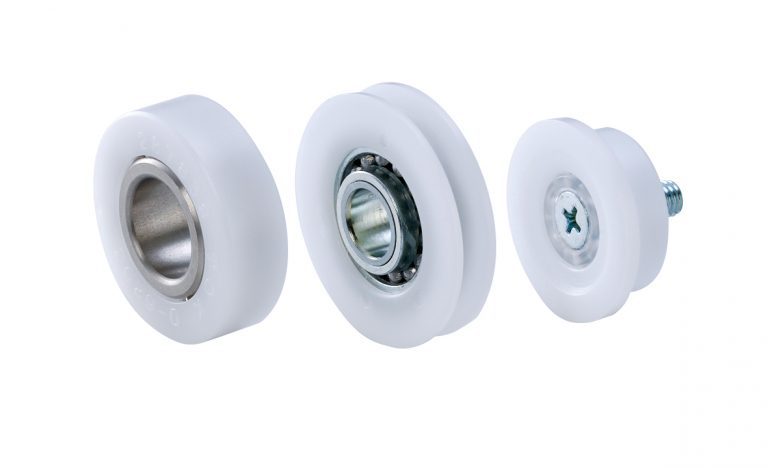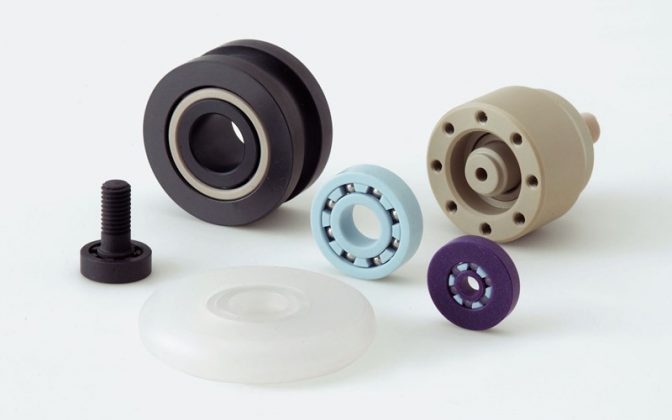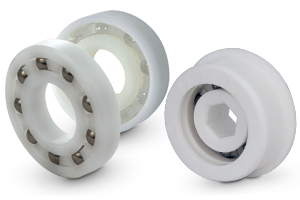Product Description
China Supplier CZPT CZPT CZPT Gearbox Water Pump Plastic Machinery Taper Roller Bearing 32012
Tapered roller bearing is a kind of radial thrust rolling bearing whose rolling element is tapered roller. There are small cone angle and large cone angle. The small cone angle mainly bears the radial and axial combined load dominated by the radial load, which is often used in pairs and installed in reverse direction. The inner and outer seat rings can be installed separately, and the radial and axial clearance can be adjusted during the installation and use; the large cone angle mainly bears the axial and radial combined load dominated by the axial load, which is generally not used to bear the pure axial load alone, but as a pair configuration (the same name end is opposite) It can be used to bear pure radial load.
| Product name | Tapered roller bearing |
| Material | Bearing Steel |
| Standard | DIN GB ISO JIS |
| Bearing Package | Barreled, bagged, boxed, palletized or as customers’ requirement. |
| Service | OEM service provided |
| Delivery time | 3-10 days depends on quantity needed |
Features and Benefits:
1: It is a separate type bearing. Both the inner and outer rings of the bearing have tapered raceways, and the rollers are cone-shaped. The roller and raceway are in linear contact, which can bear heavy radial and axial combined load and axial load. The larger the contact angle is, the higher the axial bearing capacity is; on the contrary, the smaller the contact angle is, the lower the axial bearing capacity is.
2: The design of tapered roller should make the contact line between roller and inner and outer raceway extend and cross at the same point of bearing axis to realize rolling.
3: Tapered roller bearings can be divided into single row, double row and 4 row tapered roller bearings. This kind of bearing also uses English series products.
Our Advantages
1. World-Class Bearing: We provide our customers with all types of indigenous bearing with world-class quality.
2. OEM or Non-Stand Bearings: Any requirement for Nonstandard bearings is Easily Fulfilled by us due to its vast knowledge and links in the industry.
3. Genuine products With Excellent Quality: The company has always proved the 100% quality products it provides with genuine intent.
4. After Sales Service and Technical Assistance: The company provides after-sales service and technical assistance as per the customer’s requirements and needs.
5. Quick Delivery: The company provides just-in-time delivery with its streamlined supply chain.
FAQ
SAMPLES
1. Samples quantity: 1-10 PCS are available.
2. Free samples: It depends on the Model No., material and quantity. Some of the bearings samples need client to pay samples charge and shipping cost.
3. It’s better to start your order with Trade Assurance to get full protection for your samples order.
CUSTOMIZED
The customized LOGO or drawing is acceptable for us.
MOQ
1. MOQ: 10 PCS standard bearings.
2. MOQ: 1000 PCS customized your brand bearings.
OEM POLICY
1. We can printing your brand (logo, artwork)on the shield or laser engraving your brand on the shield.
2. We can custom your packaging according to your design
3. All copyright own by clients and we promised don’t disclose any info.
/* January 22, 2571 19:08:37 */!function(){function s(e,r){var a,o={};try{e&&e.split(“,”).forEach(function(e,t){e&&(a=e.match(/(.*?):(.*)$/))&&1
| Brand Name: | Koyo, NSK, NTN, Timken, NACHI |
|---|---|
| Precision Rating: | P0, P6, P5 |
| Seals Type: | Open/2ls |
| Number of Row: | Double Row |
| Backlash: | C0/C2/C3/C4 |
| Bearing Types: | N, Nu, Nj, NF, Nup, Nn, Nnu, FC, Fcd, Fcdp, etc |
| Customization: |
Available
| Customized Request |
|---|

What are the eco-friendly or sustainable aspects of plastic bearing materials?
Plastic bearing materials offer several eco-friendly and sustainable aspects. Here’s a detailed explanation:
- 1. Recyclability:
Many plastic bearing materials are recyclable. At the end of their useful life, these bearings can be collected, processed, and transformed into new plastic products or materials. Recycling plastic bearings helps reduce waste, conserve resources, and minimize the environmental impact associated with their disposal. This promotes a circular economy and reduces the demand for virgin plastic production.
- 2. Use of Recycled Content:
Some plastic bearing materials can be manufactured using recycled content. By incorporating recycled plastics into the production process, the reliance on new plastic raw materials is reduced. This helps conserve resources, reduce energy consumption, and decrease the carbon footprint associated with the manufacturing of plastic bearings.
- 3. Lower Energy Consumption:
Plastic bearings often require less energy consumption compared to metal bearings. This is primarily due to their lower weight, which reduces the energy required for transportation, installation, and operation. Additionally, plastic bearings can operate without the need for external lubrication, eliminating the energy consumption associated with lubrication systems or processes.
- 4. Reduced Maintenance and Lubrication:
Plastic bearings can offer reduced maintenance requirements and eliminate the need for external lubrication. Unlike metal bearings, many plastic bearings are self-lubricating or have low friction properties, allowing them to operate effectively without the need for regular lubrication. This not only reduces maintenance efforts and costs but also minimizes the use of lubricants, which can be environmentally harmful if not properly managed.
- 5. Chemical Resistance and Durability:
Plastic bearing materials often exhibit excellent chemical resistance and durability. This enables them to withstand harsh environments and aggressive substances without degradation or the need for frequent replacements. The longevity and resistance to chemical attack reduce the overall environmental impact associated with the production, use, and disposal of plastic bearings.
- 6. Lighter Weight:
Plastic bearings are generally lighter in weight compared to metal bearings. This lightweight characteristic offers several eco-friendly benefits. Firstly, it reduces the energy required for transportation and installation, resulting in lower fuel consumption and greenhouse gas emissions. Secondly, it can contribute to weight reduction in machinery or equipment, leading to energy savings during operation.
In summary, plastic bearing materials offer several eco-friendly and sustainable aspects, including recyclability, use of recycled content, lower energy consumption, reduced maintenance and lubrication requirements, chemical resistance and durability, and lighter weight. By choosing plastic bearings with these sustainable attributes, industries can reduce their environmental footprint, promote resource conservation, and contribute to a more sustainable and eco-friendly approach to bearing technology.

What are the potential challenges or limitations of using plastic bearings in specific industries?
While plastic bearings offer numerous advantages, they also have certain challenges and limitations when used in specific industries. Here’s a detailed explanation of the potential challenges or limitations:
- 1. Temperature Limitations:
One of the limitations of plastic bearings is their temperature limitations. Different types of plastic materials have varying temperature ranges within which they can operate effectively. In high-temperature environments, plastic bearings may experience reduced load capacity, increased friction, or even deformation. Therefore, in industries such as aerospace, automotive, or heavy machinery, where high temperatures are common, alternative bearing materials may be more suitable.
- 2. Load Capacity:
Plastic bearings generally have lower load carrying capacities compared to their metal counterparts. They may not be suitable for applications with extremely high loads or heavy machinery where substantial forces are involved. Exceeding the load capacity of plastic bearings can lead to premature wear, deformation, or failure. Therefore, in industries that require heavy-duty applications or high load capacities, metal bearings or other robust bearing solutions may be preferred.
- 3. Speed Limitations:
Plastic bearings may have limitations when it comes to high-speed applications. The speed at which plastic bearings can operate effectively without experiencing excessive friction, heat buildup, or wear is typically lower compared to metal bearings. In industries that require high rotational speeds, such as industrial machinery or automotive applications, alternative bearing materials or specialized designs may be necessary to handle the demands of high-speed operation.
- 4. Chemical Compatibility:
While plastic bearings offer excellent chemical resistance to a wide range of substances, they may not be compatible with certain aggressive chemicals or solvents. Some chemicals can cause degradation, swelling, or softening of certain plastic materials, affecting the performance and lifespan of the bearings. In industries where exposure to harsh chemicals is prevalent, it is crucial to select plastic bearings that are specifically designed to withstand the specific chemical environment or consider alternative bearing materials.
- 5. Abrasion and Wear:
Plastic bearings may be more susceptible to abrasion and wear compared to metal bearings, especially in applications involving abrasive particles or high levels of friction. While plastic bearings are designed to resist wear, prolonged exposure to abrasive conditions can lead to increased wear rates and reduced lifespan. In industries such as mining, construction, or material handling, where abrasive contaminants are present, additional protective measures or alternative bearing materials may be necessary to ensure long-term performance.
- 6. Application-Specific Considerations:
Each industry has its specific requirements and operating conditions that must be considered when selecting bearings. Factors such as load type, vibration, shock, moisture, and environmental conditions can impact the suitability of plastic bearings. It is essential to evaluate the specific application requirements and consult with bearing manufacturers or industry experts to determine whether plastic bearings can meet the demands of the particular industry.
In summary, while plastic bearings offer many advantages, they also have limitations in specific industries. Temperature limitations, load capacity, speed limitations, chemical compatibility, abrasion and wear susceptibility, and application-specific considerations are important factors to consider when deciding whether plastic bearings are suitable for a particular industry or if alternative bearing materials should be considered.

What are the common types of plastic materials used for plastic bearings, such as PTFE or nylon?
Plastic bearings can be made from various types of plastic materials, each offering unique properties and advantages. Here are some common types of plastic materials used for plastic bearings:
- 1. PTFE (Polytetrafluoroethylene):
PTFE is a widely used plastic material for bearings due to its excellent low friction and self-lubricating properties. PTFE bearings have a low coefficient of friction, which reduces wear and energy consumption. They can operate without additional lubrication, making them suitable for applications where lubrication is challenging or undesirable. PTFE bearings also have high chemical resistance and can withstand a wide temperature range.
- 2. Nylon (Polyamide):
Nylon is another common plastic material used for bearings. It offers good wear resistance, low friction, and high strength. Nylon bearings can handle moderate loads and have self-lubricating properties. They are also resistant to chemicals and have excellent dimensional stability. Nylon bearings are often used in applications such as conveyor systems, automotive components, and machinery.
- 3. POM (Polyoxymethylene):
POM, also known as acetal or Delrin, is a versatile engineering plastic used in bearings. POM bearings have low friction, high wear resistance, and good dimensional stability. They exhibit excellent strength and stiffness, making them suitable for applications with moderate loads. POM bearings are often used in industries such as automotive, electronics, and consumer goods.
- 4. UHMWPE (Ultra-High Molecular Weight Polyethylene):
UHMWPE is a plastic material known for its exceptional wear resistance and impact strength. UHMWPE bearings can withstand heavy loads, have a low coefficient of friction, and offer good chemical resistance. They are often used in applications where high abrasion resistance and durability are required, such as in material handling equipment, conveyor systems, and agricultural machinery.
- 5. PEEK (Polyetheretherketone):
PEEK is a high-performance plastic material with excellent mechanical properties and temperature resistance. PEEK bearings can operate at high temperatures, making them suitable for applications in demanding environments. They offer low friction, good chemical resistance, and high strength. PEEK bearings are commonly used in aerospace, automotive, and medical applications.
These are just a few examples of the plastic materials used for plastic bearings. Other plastic materials, such as polyimide, PPS (polyphenylene sulfide), or PVDF (polyvinylidene fluoride), can also be used depending on the specific application requirements. The choice of plastic material for a plastic bearing depends on factors such as load capacity, temperature range, chemical compatibility, and friction characteristics.


editor by CX 2024-05-06